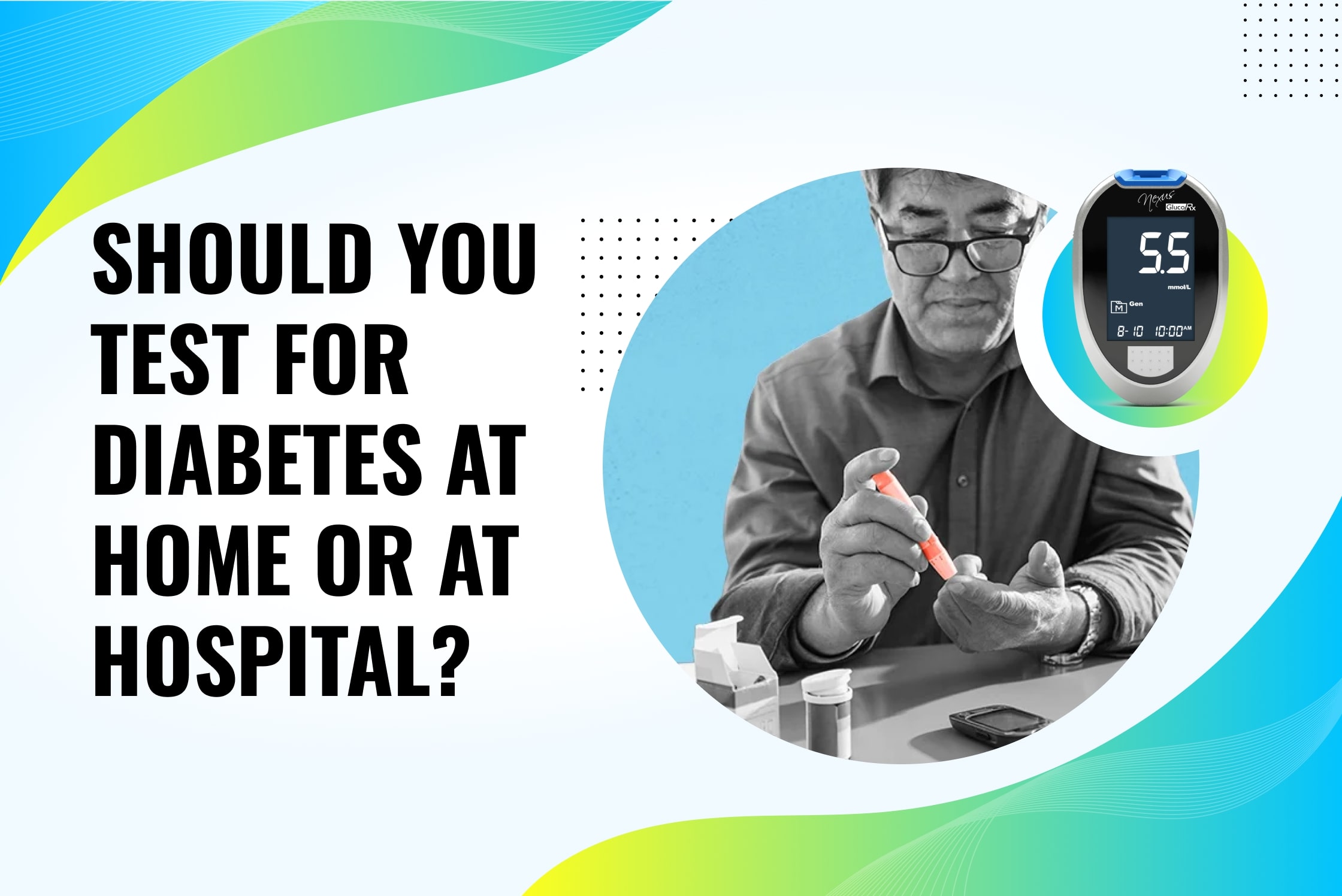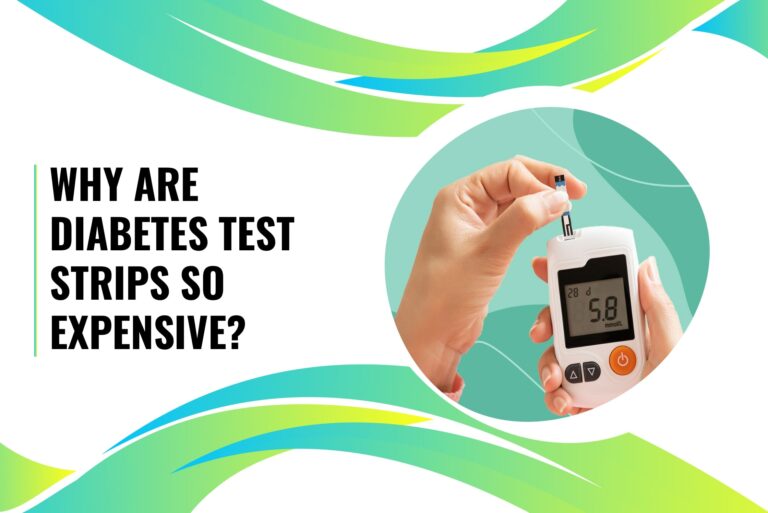Should You Test For Diabetes At Home or Hospital?
Diabetes is a condition many of us want to be aware of and informed about.
If you’re curious whether or not diabetes might play a role in your life, it helps to know what testing options are available for diagnosis.
Read on as we discuss the different methods so that you can make an educated decision – from hospital visits to at-home tests!
What are the different diabetes tests you can do at the hospital?
The hospital has different tests to see if a person has diabetes.
1. A1C Test
This test measures how much sugar has been in a person’s blood over the past two or three months by checking the amount of sugar attached to hemoglobin in red blood cells.
The A1C test is a non-invasive procedure; results usually come back within a few days.
2. Oral Glucose Tolerance Test (OGTT)
In this test, you will drink a sugary solution containing 75 grams of sugar; then, your blood sugar levels will be measured over the next 2 hours.
This procedure lets doctors see if someone has high or low blood sugar levels after eating or drinking something sweet. Results from an OGTT usually come back within 24 hours.
3. Urine Analysis
Urine analysis checks for glucose in the urine – if it is present, it may mean that the person has diabetes.
4. Genetic Testing
Finally, healthcare providers may order genetic testing to look for certain gene variations associated with an increased risk of developing type 1 diabetes or other autoimmune diseases like celiac disease or thyroiditis.
Results from genetic testing generally take up to 6 weeks but provide valuable insights into an individual’s risk factors for developing these conditions.
Read: How To Test For Diabetes At A Hospital: Full Guide
What are the different diabetes tests you can do at home?
Diabetes tests can provide important information to keep patients healthy. Self-testing is one way to stay on track with your health if you have diabetes.
Several testing options are available for at-home use. The most common option is Blood Glucose Testing,which measures glucose levels in the blood.
Then, a Urine Glucose Test called a ketone test can also be used to measure ketones, an indication of diabetes control.
Lastly, more advanced forms of testing, such as a Continuous Glucose Monitoring System, can help you maintain consistently good diabetes care. Home tests offer convenience and quick results and are instrumental in managing and treating diabetes.
Related Post – How To Test For Diabetes At Home: Ultimate Guide
Should You Test for Diabetes at Home or at a Hospital?
If you can’t decide whether to test for diabetes at home or a hospital, consider these pros and cons.
Pros of Testing for Diabetes at the Hospital:
– Non-invasive procedures
– Accurate and reliable results
– Ability to measure glucose levels over a longer period (A1C test)
– Ability to detect other underlying health issues such as high cholesterol or insulin resistance syndrome.
Cons of Diabetes Testing at Hospital:
– Cost: Hospital tests may be more expensive than testing at home.
– Invasiveness: Certain hospital tests, such as the blood glucose test or OGTT, require drawing blood which can cause discomfort.
– Time: It can take longer to receive results from hospital tests than home tests, depending on the type of test conducted.
Pros of Testing for Diabetes at Home:
– Convenient and quick results
– Cost-effective testing options
– Can track your diabetes control with more advanced tests such as Continuous Glucose Monitoring systems.
Cons of Testing for Diabetes at Home:
– Not always accurate depending on the type of test used.
– Less Accurate Results: Hospital test results are often more accurate than those at home.
Verdict: You can try self-testing at home for diabetes at first. But if you’re unsure that you’ve done it correctly or at the results, then you can go to a hospital.
Who should be tested for diabetes?
Everyone should take the initiative to be tested for diabetes, as early detection and treatment can help manage symptoms and minimize health risks.
Individuals at risk for diabetes — including people categorized as overweight or obese, people with Type A1 family history, and those of certain ethnic backgrounds such as African American, Latino/Hispanic American Indian, or Alaska Native — should get tested by their doctor.
While these individuals may need to take additional steps to manage their health if they are diagnosed with diabetes, everyone should be conscious of potential warning signs such as increased thirst or hunger, frequent urination, fatigue, or blurred vision.
What are the signs and symptoms of diabetes?
Diabetes is a metabolic disorder that affects a person’s ability to regulate blood sugar levels. Left untreated, it can cause very serious health problems.
It is important to be aware of common signs and symptoms of diabetes so that it can be caught early to prevent further complications.
If any of these symptoms are present, scheduling a test is an important way to ensure a healthy lifestyle:
– Frequent urination
– Excessive thirst
– Unintended weight loss
– Extreme hunger
– Fatigue and weakness
– Blurred vision
– Slow healing sores or infections
– Itchy skin
Final Words
If you have any signs and symptoms of diabetes, you must consult your doctor to get tested for the disease. Diabetes is a serious condition that can be managed with treatment but left untreated; it can lead to devastating complications.
There are two main types of testing for diabetes – at-home testing and tests done at a hospital or clinic. Each has its pros and cons, so it is important to speak with your doctor about which test is right for you.





